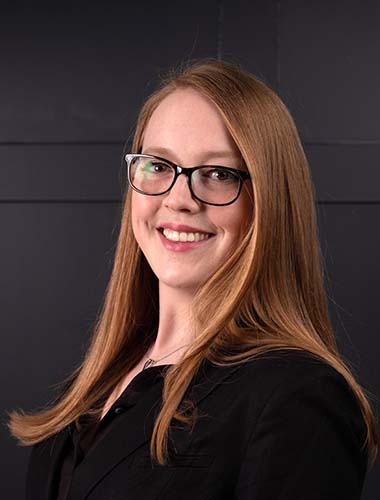Amy Francis-Smith RIBA
Vice President & Architect RIBA ARB
Art, Fashion and Design

Amy Francis-Smith is the Vice President of the Birmingham Architectural Association, an Architect at Pinnegar Hayward Design and a passionate advocate for inclusive design. With her work focused on providing decent housing and accommodation across the built environment for people with disabilities.
Named as a Design Council Specialist in Accessible Environments, providing expert advice on accessibility, policy, design and top-level strategy. Amy has experience across design and construction, particularly with residential schemes, multi-million-pound healthcare projects as well as access consultancy for projects such as the Royal Society of Blind Children and new product development.
Out of 64,000 people, Amy was shortlisted as a National Diversity Award Positive Disability Role Model, a UK Construction Week Role Model, Birmingham Live’s 30 Under 30 and was named as in the Disability Power 100 2020.
Campaigning for legislative change, she helps educate students and professionals on their social responsibility, sits on Habinteg’s advisory board (an accessible housing association), lobbies the government to improve the Part M Building Regulations and has had numerous articles published.
Amy has been featured multiple times in the Architects’ Journal, involved with national events including the RIBA’s equality, diversity & inclusion employment session and helped run a pilot course at top Architecture school The Bartlett UCL, bringing blind and visually impaired students into Architectural education.
Her determination stems from witnessing the experience of friends and family as well as her own ill health with multiple severe chronic illnesses/disabilities. Most notably Mast Cell Activation Syndrome, Ehlers-Danlos Syndrome, Crohn’s, a hearing impairment and subsequent mental health issues.
“Accessibility now is like sustainability was 20 years ago when they just stuck solar panels on the roof and called it an eco-building.
“Someone needs to make changes to the world, so why not let it be you? Call the council, complain to the shopping centre – get into architecture and prevent inaccessible spaces from being built.
“Why does the world always have to ‘design FOR the disabled’? I want to see disabled people doing the designing.”
